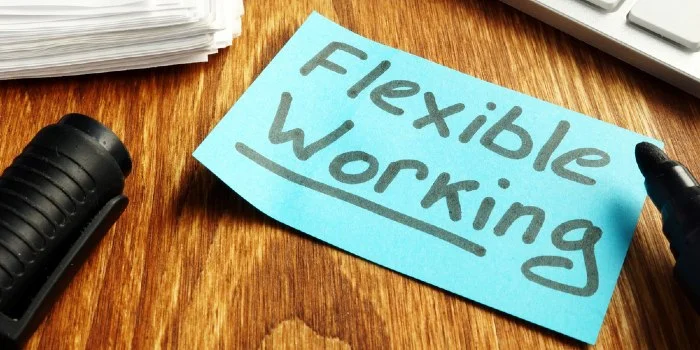Since coming into force on April 2021, IR35 has been a bane for contractors and employers alike.
Designed to stop tax avoidance by employees that are designed as freelancers or contractors, this legislation had changed the way that contractors are hired and assessed for each role.
We’ve talked before about how to avoid IR35 – but if you’re classed as being inside IR35 you need to know what that means and what inside IR35 expenses you can claim to ease the burden.
What is inside IR35?
If you are classed as being inside IR35, then you are viewed as an employee for the contract or project that you are currently working on. This classification would have happened because you have a long-term and permanent commitment to the company or have an obligation to receive and complete work on an ongoing basis. For example, if you’ve agreed to provide IT services for a set amount of months for a company, you could be classed as an employee.
Being classed as an employee in this way does come with a few benefits, including holiday and sick pay, as well as access to pension schemes and redundancy pay.
However, being classed as inside IR35 means that you’ll be taxed more than if you were outside of IR35. For the contact that you are inside IR35, you will have to pay PAYE Tax and National Insurance before receiving the net pay and pay employment taxes on the income through a self-assessment tax form.
Depending on what company you’re working for while inside IR35, you might be eligible for 5% expenses for the running of your company.
Lost the buzz for your business?
Starting a business is exciting. Succeeding is rewarding. The bit between is hard, repetitive, and full of self-doubt.
The Lonely Middle Club (From Business4Beginners) helps you through it:
Get support and advice from other small business owners
Remove the self-doubt that’s holding your business back
Learn techniques and strategies to grow your business faster
Be inspired with our exclusive ‘swipe’ file and AI-powered tools
No pressure – work at YOUR pace, towards YOUR goals
—
Inside IR35 expenses you can claim
Inside IR35 expenses have gone through a bit of a change, making it a little confusing about what you can claim. Before these changes, every contractor inside IR35 could claim 5% of expenses.
However, this was scrapped for the public and private sectors, unless the company is classed as a small business. So, if you’re inside IR35 for a small business, you can claim a 5% deduction of the total contract as expenses.
The 5% expenses should go towards the general running of your business, and can include:
- Office costs;
- Equipment;
- Accountancy and tax advice;
- Business development costs;
- Printing, postage, and stationery;
- Other office equipment or materials;
- Telecoms, i.e. phone contracts;
- Insurance, including public liability insurance;
- Bank charges;
- And more.
If you’re ever unsure about what you can claim for, just get in touch with your accountant – or take a look at our best-reviewed online accountants to lend a hand.
There is a slight execution here, and that’s travel costs. If you are inside IR35, you cannot claim for travel to and from your client’s place of work. This is because being inside IR35 means that you are seen as an employee, thus this journey will be classed as a normal ‘commute’ and thus cannot be expensed.
However, if you have to make additional journeys for this contract, such as travelling to another site, meeting prospects, or collecting equipment, you can claim for these costs as they are outside the ‘normal commute’.
What are allowable expenses for a limited company?
Who determines if you’re outside or inside IR35?
Being outside of IR35 comes with more tax allowances than being inside IR35. If you’re looking to avoid the legislation, it’s important to know where the classification comes from.
In this case, employers are the ones responsible for IR35 classifications of their employees and will be the ones that face hefty fines and penalties if they are found to cheat the system, which we don’t recommend at all. IR35 was put into place to prevent tax avoidance from disguised employees, i.e. people that get all the benefits from being employed (such as holiday, sick pay, etc), all while claiming low tax costs of a contractor.
Employers caught with a disguised employee will face hefty fines and penalties for tax avoidance, an extra 25% on top of their final tax bill, and a long and stressful HMRC investigation.
For employers, it’s not worth the stress – which might make them more included to class contractors as inside IR35. However, if you want to take on contracts outside of IR35 with other companies, you need to ensure that:
- You have a clear and detailed contract that clearly outlines your role as a contractor, not an employee.
- You don’t receive any employee benefits or are treated as such. It could be a good idea to keep all of your correspondence here as evidence.
For more information on classification, you might want to see HMRC’s CEST (Check Employment Status for Tax) tool on their website.
Can I work through a limited company inside IR35?
If you work as a contractor through your own limited company, you can still qualify for being inside IR35 for certain contracts as part of that business.
The change in your tax only applies to the contracts that class as being inside IR35. All other contracts will be taxed as normal for your limited company.
However, if one of your contracts falls inside of IR35, you can choose to work through an umbrella company rather than through your limited company. This means the umbrella company will take on the role of employer and sort your PAYE salary out on your behalf.
Top-Rated Company Formation Agents
| Formation Agent | Cheapest Package | Add On Services | Our Rating | Review | Official Site |
|---|---|---|---|---|---|
 | £12.99 | Excellent | 9.4 | Read Review | Visit Website |
 | £11.99 | Excellent | 9.4 | Read Review | Visit Website |
 | FREE | Average | 9.4 | Read Review | Visit Website |
How to calculate your income inside IR35
IR35 can be confusing. So to make matters a little easier, we’ll go through an example of what the income and take-home pay would be like for Gene, an IT consultant that runs his own limited company. If you prefer, you can follow the HMRC’s guide to calculate deemed employment payment instead.
Gene has just taken on a contract with a small business for 2 months of work at a total value of £20,000, which is classed as being inside IR35.
The contract is worth £20,000, which is the total income.
Because the client is a small business, Gene can expense 5% inside IR35. That means he has a £1,000 expense allowance. The remaining £19,000 will be used to calculate his tax liabilities.
Firstly, Gene’s company will have to pay Employer’s National Insurance to the HMRC at a rate of 13.25% – totalling £2,517.50. This leaves £16,482.50 as Gene’s take-home pay, which will be liable for National Insurance and Income Tax.
In summary:
| Contract value | £20,000 |
| Allowable 5% expenses | £1,000 |
| Taxable amount | £19,000 |
| Employer NIC payment | £2,517.50 |
| Take home pay | £16,482.50 |
The £1,000 from his allowable 5% expenses will go back into the limited company as profits.
If any of this is going over your head, don’t panic. An accountant will be able to sort through this noise in no time and tell you exactly how much you can make, what you can claim back, and the best way to carry out your business in regards to IR35.
What expenses can you claim outside IR35?
If you’re working outside of IR35, you can claim expenses for your company as normal.
To help you out in these areas, we’ve put together these all-inclusive guides on:
- What expenses a sole trader can claim in the UK;
- What are allowable expenses for a limited company in the UK?
For more help and information on your expenses, we’d recommend speaking to your accountant and keeping a detailed record of your books using accounting software.
Which Accounting Software Is Right For You?
Answer 5 multiple choice questions to get a personal recommendation:
Want more free tips and advice for your business?
We’re here for you at Business4Beginners. For tips, ideas, news, guides, reviews, and more, you can find it all here.
Make sure you never miss a thing by signing up for our newsletter.






